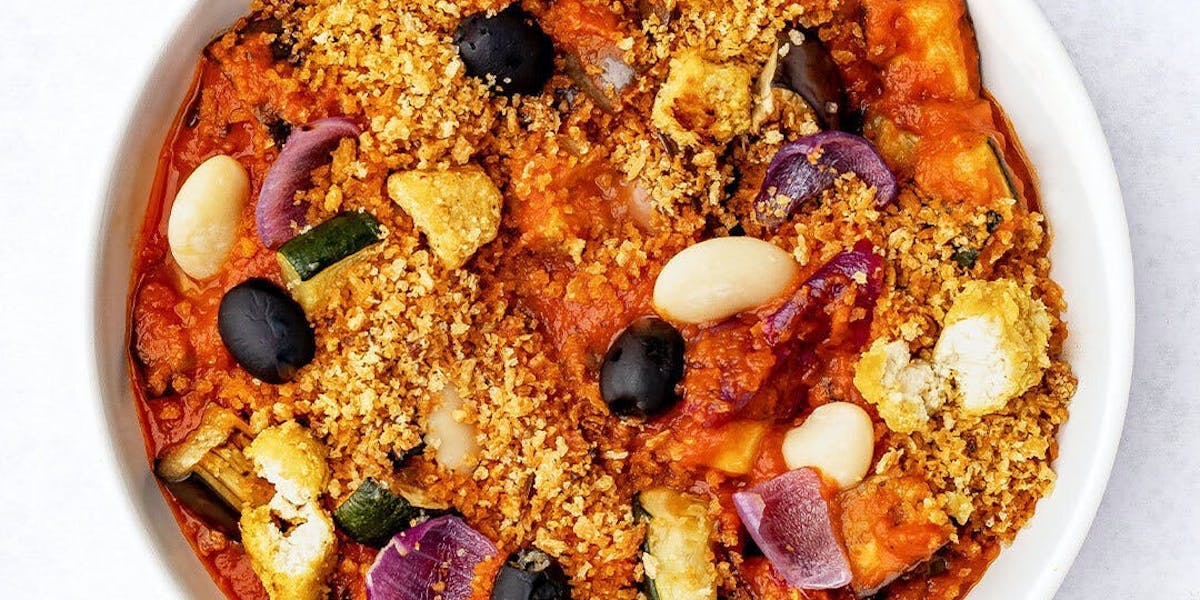Lifestyle
Plates For The Planet – How Can Veganism Help The Environment?
5min read
Enjoying a plant-based diet not only brings us varied, delicious and healthy meals, but it’s also good for the environment!
Vegan diets have less of an impact on the environment than ones containing meat and dairy. Here’s a closer look at the factors which mean that joining the plantribe can help the environment.
1 Protecting marine wildlife
Fish is a popular source of protein and omega-3, meaning that fish stocks are being used up faster than they can be naturally replenished and the problem of ‘by-catch’ (unintentional capture of non-target species such as dolphins, turtles and seabirds) accelerates this. Our lakes and oceans are built up of complex food chains and when imbalances are created at one level of these (for example as a result of overfishing) the rest of the ecosystem is also affected.
How plant-based living can help – Veganism removes the problem of overfishing entirely. In fact, moving towards more plant-based foods introduces us to exciting new, sustainable, ways to utilise the world’s oceans including growing seaweed for food!
2 Cleaner waterways
To help maintain profitability, many farms need to use chemicals. For example, growing feed crops for livestock relies on high quantities of pesticides and fertilisers to make sure enough feed is produced quickly and continuously, and antibiotics are required to ensure the livestock don’t get sick. These chemicals eventually end up in the surrounding waterways via a process known as farm runoff, harming the plants and animals living in or around the polluted waterways.
How plant-based living can help – the need to grow feed crops at a rapid rate in order to feed growing livestock is removed when cultivating crops for human consumption alone, so moving to organic farming methods becomes more viable. As well as cleaner waterways, organic farming is preferable because it helps create a healthy living soil that’s more resistant to drought, floods and consequently the impacts of climate change.
3 Less deforestation
At the moment 50% of the world’s habitable land is used for agriculture (growing crops, rearing and grazing livestock, the dairy industry and growing feed for livestock). But as the human population and the demand for meat grows, more land is needed, making food production one of the main drivers of deforestation. Fewer forests doesn’t just mean fewer trees to absorb the greenhouse gas carbon dioxide (CO2) from the atmosphere, but it also means less wildlife.
How plant-based living can help – As land is no longer needed to grow feed for livestock, in addition to pasture land and crops for human consumption, the total land needed for human food production decreases. In short, this means less deforestation, and greater quantities of habitable land for wildlife.
4 Less greenhouse gas emissions
Nitrous Oxide
Grazing cattle need plentiful supplies of grass. In order to keep up with this, nitrogen fertiliser is often used to stimulate grass growth. The production of nitrogen fertiliser releases both CO2 and the potent greenhouse gas nitrous oxide (N2O).
Carbon dioxide
The deforestation involved in creating new pasture land leads to rising levels of CO2 in the atmosphere. This is due to the machinery being used to clear the trees, and the fact that there are fewer trees to absorb CO2 from the air.
Methane
Ruminant livestock (such as cattle, sheep and goats) produce the greenhouse gas methane (CH4) through their digestive processes.
Why does this matter?
Greenhouse gases keep the planet habitable by holding onto some of Earth’s heat energy, rather than it disappearing into space in a process known as the greenhouse effect. But just as too little greenhouse gas makes Earth too cold, too much makes it too warm. The increase in greenhouse gases in our atmosphere over recent years has led to increases in global temperatures.
How plant-based living can help – Growing crops for human consumption requires less land and deforestation, nitrogen fertiliser and doesn’t release CH4 into the atmosphere than the meat industry.
Want to make your plates for the planet even more sustainable?
As we enjoy eating a variety of fruits and vegetables from all over the world, it’s important that we think about where these have come from and how they’ve made it to UK shops. If we buy seasonal fruit and veg that’s sourced as locally as possible we can make sure our food shop is even more sustainable.
If you’re looking for more tips on how to create plates for the planet, visit our environment page.
By Ellie Harrison
Ellie heads up all-things sustainability, making sure everything we do is as conscious as possible. She couldn’t live without volleyball, killer whales and porridge… though hopefully not at the same time.
Let us take care of dinner
We help to make eating more plants easy and delicious. Fancy letting us take care of dinner? Check out our delicious meals here.
Shop now
